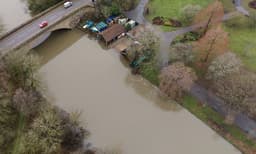Home / Environment / Cornish Entrepreneur Turns Discarded Fishing Nets into Valuable 3D Printing Material
Cornish Entrepreneur Turns Discarded Fishing Nets into Valuable 3D Printing Material
16 Oct, 2025
Summary
- Ian Falconer converts discarded fishing nets into filament for 3D printing
- His company OrCA has raised over £1 million from investors in 40+ countries
- Recycling process has less than 3% of the carbon impact of producing new nylon

In 2025, Ian Falconer, a 52-year-old environmental and mining geologist, has found an innovative solution to the problem of discarded fishing nets. Falconer, who lives in Cornwall, was troubled by the heaps of abandoned nets he saw at the Newlyn harbour near his home. Determined to find a better use for this waste, he came up with a plan to shred, clean, and melt the worn-out nets, converting the plastic into filament for 3D printing.
Falconer's company, OrCA (previously Fishy Filaments), which he launched in 2017, has since raised over £1 million from small investors in more than 40 countries. This investment has funded the development of patented machinery that can convert over 20 kilos of nylon fishing nets per hour. Falconer claims the recycling process has less than 3% of the carbon impact of producing new nylon.


